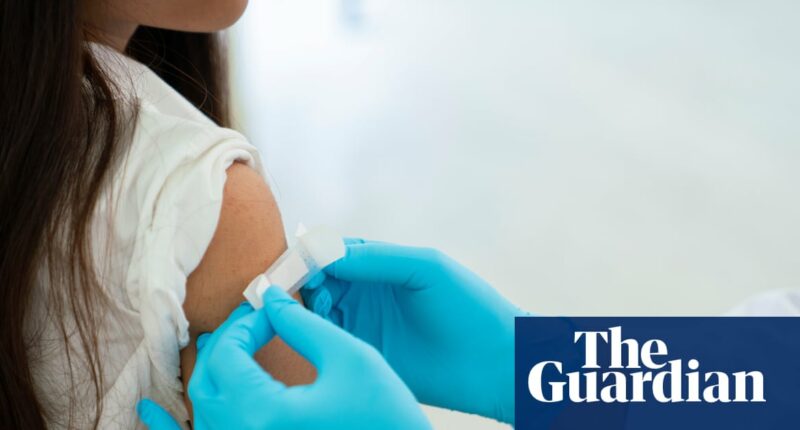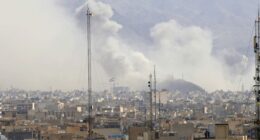Share this @internewscast.com
Argentina is facing an alarming decline in childhood and adolescent vaccination rates, reaching unprecedented lows that have sparked fears of a resurgence in diseases previously eradicated.
According to a recent analysis by the Argentinian Paediatric Society (SAP), health ministry data reveals that in 2024, fewer than half of children aged five and six received several crucial vaccines. Alarmingly, none of the vaccination rates studied met the 95% threshold necessary for achieving herd immunity.
This marks a dramatic turn for a nation once celebrated for its robust immunization program in Latin America. Although vaccine coverage has been on a gradual decline since 2015, experts in public health emphasize that the rapid and severe drop seen in 2024 is unprecedented. This collapse is further exacerbated by Javier Milei’s extensive austerity measures, which have led to significant cuts in the national health budget and weakened the outreach networks that were pivotal to Argentina’s past vaccination successes.
“The situation is grave. Coverage keeps declining, reaching historic lows,” stated Dr. Alejandra Gaiano, a pediatric infectious disease expert with the SAP. “The potential re-emergence of diseases we had previously eliminated or controlled is our most pressing concern.”
The SAP’s findings indicate that only 46% of five-year-olds received the MMR (measles, mumps, and rubella) vaccine in 2024, a stark drop from nearly 90% in the years between 2015 and 2019. Similarly, the proportion of five-year-olds receiving the polio vaccine booster plummeted from 88% to 47%, while the vaccination rate for whooping cough, diphtheria, and tetanus fell from 88% to merely 46% during the same timeframe.
“We are dealing with a scenario of widespread immunological vulnerability. These current figures not only jeopardize individual immunity but also pose a substantial threat to public health as a whole,” warned Gaiano.
The SAP cautioned that changes in how some municipalities recorded immunisations in 2023 would have contributed in part to the decrease, but said this would not have had a “substantial impact” and that coverage levels remained “critically low”.
While reduced coverage was seen across all ages, experts warned that the situation was particularly alarming in children younger than 18 months old. The SAP estimated that coverage of the third dose of the pentavalent vaccine and the inactivated polio vaccine, administered at six months old, fell by an average of 10 points from pre-pandemic levels. This would mean more than 115,000 infants did not complete the schedules needed to protect them from diphtheria, hepatitis B, polio and whooping cough.
According to Elizabeth Bogdanowicz, an SAP infectious disease specialist, it is now common for less than 70% of children to have received their mandatory vaccines.
Access barriers were the primary driver of the decline, worsened by Argentina’s deepening economic crisis and sharp cuts in public spending under libertarian Milei. Since taking office in December 2023, the president has slashed Argentina’s healthcare budget by 48% in real terms.
Gaiano said difficulties ranged from reduced clinic hours and fewer media campaigns to the cutting back of outreach work that once underpinned Argentina’s historically strong immunisation system.
“At one time, outreach activities were carried out. Vaccinators would go door to door to vaccinate people, but these activities are decreasing. Activities used to be carried out in schools, but with the cutbacks this has become difficult,” Gaiano said. Parents struggling to pay for travel or to get time off work have also played a role, she added.
This strain on services also coincides with a post-pandemic rise in vaccine mistrust. Gaiano said Argentina previously had “almost no anti-vaccine groups” but that the pandemic “generated some mistrust of the Covid vaccine”, which had “spread to other vaccines”.
Experts warned that the low coverage could lead to the re-emergence of eliminated diseases such as hepatitis A, whooping cough, measles and polio.
Argentina has already reported a large number of hepatitis A cases this year and has seen an uptick in measles. It is currently battling a whooping cough outbreak – the number of cases is three times higher in 2025 than the year previous, and five children have died so far, the SAP said.
The Argentina ministry of health was approached for comment.











